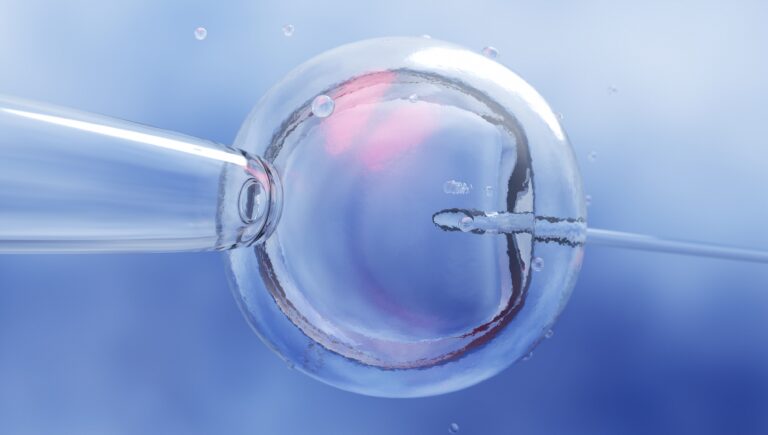Egg quality and IVF

If you’re considering having a family now or in the future, you may know that the quality of your eggs plays a big part in the success of both natural conception, and IVF treatment outcomes. In fact, egg quality is the biggest contributing factor to overall fertility.
While men can continue to produce sperm cells throughout life, women are born with all the eggs they are ever going to have. The number and quality of these eggs are known to decrease over time, most notably from the age of 35 onwards.
Quality Over Quantity
While a good egg reserve is helpful, overall fertility is driven by egg quality more so than egg count.
Egg Count
Couples or individuals trying to conceive, or interested in investigating their fertility, would likely have been made aware of the importance of their egg count (or ovarian reserve). This refers to the estimated number of eggs that remain tucked away inside the ovaries, which have the potential to be ovulated, or recruited and collected for use in an IVF cycle.
Testing the levels of Anti-Mullerian Hormone (AMH) in the blood, works to give an insight into roughly how many eggs remain. It is important to have these results interpreted by a specialist, as there are a number of reasons including Polycystic Ovarian Syndrome (PCOS), or being on the Oral Contraceptive Pill (OCP), which could have an impact on AMH levels. While there is nothing that can be done to increase the number of eggs that remain, understanding these levels may help in deciding when to start trying for a family, or if someone wishes to consider fertility preservation through egg or embryo freezing.
Egg Quality
Unlike egg count, there is no direct test of egg quality, though we know that female age is the biggest contributing factor to the quality of the eggs. All women will have some percentage of abnormal eggs; this number increases from about 20% abnormal eggs in women in their 20’s, to upwards of 80% abnormal eggs by the time a woman reaches her 40’s. Essentially, this is because older eggs make more mistakes as they move through the maturation process. These errors ultimately lead to eggs which have abnormal DNA. Without the correct DNA, the eggs lack the correct instructions to create a good quality embryo, and in turn, a healthy baby.
Often, poor quality or abnormal eggs will fail to fertilise at all when met with a sperm. Unfortunately, the small percentage of embryos that do result from older eggs do harbour an increased risk of miscarriage. Advanced maternal age, and declining egg quality is also why there is an increased risk of genetic abnormalities in babies conceived by women over 35 years.
Aside from maternal age, systemic toxic medication such as chemotherapy may cause irreversible harm to eggs. It is important to discuss your options for helping to protect or preserve egg quality before commencing chemotherapy where possible. Other reproductive illnesses including Endometriosis, may also affect egg quality and should be raised with your specialist.

Can you improve egg quality?
Unfortunately, once an egg has abnormal DNA it cannot be repaired. No medical or lifestyle intervention can reverse damage to an egg. Opting for IVF treatment may increase the number of eggs recruited but cannot improve their quality. The proportion of normal, healthy eggs will still ultimately be determined by female age at time of the egg collection.
While eggs are affected by the aging process, they are otherwise somewhat protected by the ovaries from much of the cumulative influence of everyday illness or toxins which may affect the rest of the body. This has the benefit of keeping the eggs safe, though it also means that many of the nutrients, supplements, or antioxidant therapy which may support cell health in other parts of the body, may not achieve the same results for the eggs.
The importance therefore lies in ensuring egg quality is protected as best as possible.
Modifiable lifestyle factors
Though lifestyle interventions are not shown to correct existing abnormal eggs, smoking has been linked with increased DNA damage within eggs and can also have an impact on egg count. Avoiding or quitting smoking is recommended for anyone looking to protect their fertility.
Focusing on general wellness and maintaining a healthy weight can increase overall fertility. Elevated, or low BMI’s may prevent ovulation (the release of an egg) and reduce chances of achieving natural pregnancy. An increased BMI may also reduce overall egg quality, lower fertilisation potential, and impact other factors essential for ongoing pregnancy including a healthy, receptive uterine environment.
It is important to identify and address any pre-existing reproductive illness including Endometriosis and PCOS as these may be having detrimental effects on the body’s ability to ovulate usable eggs or maintain an ongoing pregnancy. Having these complications addressed and treated first by a reproductive specialist can work to increase the chances of IVF success.

Non-Modifiable Factors
Unfortunately, there is little that can be done to target the biggest contributor to poor egg quality; female age. The option of social egg freezing for fertility preservation is becoming more and more common as women become more aware of their reproductive options.
Freezing eggs early, in your 20s or early 30s may overcome many of the challenges women face in falling pregnant in later life. The eggs essentially remain frozen in time, protected from the effects of ageing and result in success rates comparable to those at the age they were frozen. It is important to discuss this with your specialist to consider eligibility and be informed about the chances of success with egg freezing and how many cycles may be necessary to obtain a usable number of eggs.
Battaglia, D.E. et al. (1996) “Influence of maternal age on meiotic spindle assembly oocytes from naturally cycling women,” Human Reproduction, 11(10), pp. 2217–2222. Available at: https://doi.org/10.1093/oxfordjournals.humrep.a019080.
Catalano, P.M. and Shankar, K. (2017) “Obesity and pregnancy: Mechanisms of short term and long term adverse consequences for mother and child,” BMJ [Preprint]. Available at: https://doi.org/10.1136/bmj.j1.
Facts about fertility & how to improve your chance (2022) Your Fertility. Fertility Coalition. Available at: https://www.yourfertility.org.au/ (Accessed: November 25, 2022).
Hassold, T. and Hunt, P. (2009) “Maternal age and chromosomally abnormal pregnancies: What we know and what we wish we knew,” Current Opinion in Pediatrics, 21(6), pp. 703–708. Available at: https://doi.org/10.1097/mop.0b013e328332c6ab.
Mikwar, M., MacFarlane, A.J. and Marchetti, F. (2020) “Mechanisms of oocyte aneuploidy associated with advanced maternal age,” Mutation Research/Reviews in Mutation Research, 785, p. 108320. Available at: https://doi.org/10.1016/j.mrrev.2020.108320.
Smits, R.M. et al. (2018) “Antioxidants in fertility: Impact on male and female reproductive outcomes,” Fertility and Sterility, 110(4), pp. 578–580. Available at: https://doi.org/10.1016/j.fertnstert.2018.05.028.
Toner, J.P. (2003) “Age = egg quality, FSH level = egg quantity,” Fertility and Sterility, 79(3), p. 491. Available at: https://doi.org/10.1016/s0015-0282(02)04840-9.
Zhang, J. et al. (2019) “Effect of body mass index on pregnancy outcomes in a freeze-all policy: An analysis of 22,043 first autologous frozen-thawed embryo transfer cycles in China,” BMC Medicine, 17(1). Available at: https://doi.org/10.1186/s12916-019-1354-1.



